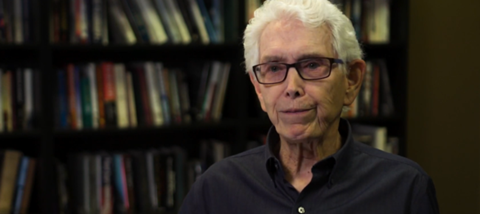
I was unsurprised to hear hundreds of people who formerly identify as transgender are seeking help to return to their birth gender. In fact, I felt vindicated by the report. It confirmed everything I've experienced and have been writing about for years.
I detransitioned back to male in 1990 after having gender reassignment surgery and living as transgender female for 8 years. I thought I was the only one until I went public with my story ten years ago, and I, too, heard from countless people who feel harmed by the experience and rejected by the transgender medical and activist communities.
The Sky News report focused on Charlie Evans, 28, who was born female but identified as male for nearly 10 years before detransitioning. Evans related how she was astonished at the hundreds of people in a similar situation who contacted her for help in the year since she went public with her story, so much so that she is starting a charity called The Detransition Advocacy Network.
Reports of regret, unhappiness and suicides after sex change have been known to the medical community for 40 years, but many of them turn their heads and ignore the stories. Perhaps as the number of regrettable outcomes balloons, we'll reach a point where the wreckage can no longer be ignored.
Signs of trouble first began to emerge 40 years ago, in 1979, when Dr Paul McHugh, a psychiatrist from Johns Hopkins Gender Clinic, and Dr. Charles L. Ihlenfeld, an endocrinologist at Harry Benjamin’s New York Gender clinic each sounded warnings about “too much unhappiness” and “too many suicides” after cross-sex hormones and gender change surgery. Then in July 2005, The Guardian posted an article with the staggering headline 'Sex Change Surgeries Not Effective, Say Researchers'.
The researchers at University of Birmingham's aggressive research intelligence facility (Arif) reviewed more than 100 international medical studies of post-operative transsexuals and found “no robust scientific evidence that gender reassignment surgery is clinically effective”. The article talked about the poor design of studies that show beneficial results. Arif, which advises the NHS in the West Midlands about the evidence base of healthcare treatments, found that most of the medical research on gender reassignment was poorly designed, which skewed the results to suggest that sex change operations are beneficial.
Additionally, The Guardian article stated: “Research from the US and Holland suggests that up to a fifth of patients regret changing sex. A 1998 review by the Research and Development Directorate of the NHS Executive found attempted suicide rates of up to 18% noted in some medical studies of gender reassignment.”
In 2011, a rigorous, long-term follow-up study from Sweden showed completed suicides among transgender people was 19 times higher than the rate of the general population, and the negative outcomes after gender change started to escalate at the 10-year mark.
Over and over, a common thread shows regret, unhappiness and suicides. So we should not be shocked or surprised that people are detransitioning back to their innate gender/sex God gave them at conception.
Last July, I wrote an article about transgender people writing me for help in finding a “good therapist” who will walk them through the detransition process. They understand that consulting the gender specialists who helped them get into the transgender mess doesn’t work for going back.
As Sally Lockwood, says in the Sky News report, “The number of young people seeking gender transition is at an all-time high, but we hear very little, if anything, about those who may come to regret their decision.”
Indeed. Time for that to change.
Walt Heyer is a speaker, author and the founder of SexChangeRegret.com. Heyer raises public awareness about the incidence of regret and the tragic consequences suffered as a result of unnecessary sex change surgery. He is the author of Trans Life Survivors and A Transgender’s Faith. For more information see his blog WaltHeyer.com
Premier Christianity is committed to publishing a variety of opinion pieces from across the UK Church. The views expressed on our blog do not necessarily represent those of the publisher.





























